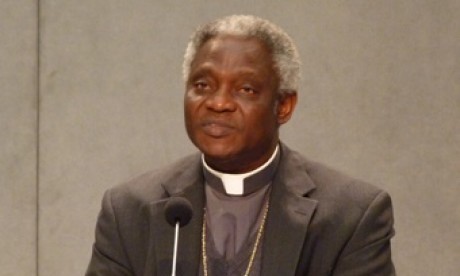As Pope Paul VI once famously told the United Nations, the Catholic church likes to think of itself as an “expert in humanity.” Development of Catholic social teaching over the last 120 years is a good example, as the church has tried to bring its moral tradition to bear on questions of economic justice.
Yet whenever the church tries to say something on economics, it faces a “damned if you do, damned if you don’t” dilemma about whether or not to get concrete.
If the church sticks to abstract principles, it’s accused of being pie in the sky and irrelevant. If it endorses specific policy proposals, it’s accused of exceeding its competence, blurring the lines between church and state, and confusing prudential judgment with dogmatic certainty.
Too much specificity courts other risks too:
- Ideological criticism from the left or the right, depending upon whose ox is being gored. (A variant is ideological cherry-picking; sort of like Kennedy and the Khrushchev letter, both conservatives and liberals tend to focus on what they like in Catholic social teaching and pretend the other stuff doesn’t exist.)
- Media focus on the most sensational policy stance, usually distorting the big picture. (Remember reaction to Benedict XVI’s call for global governance in his 2009 encyclical Caritas in Veritate? To read paranoid anti-globalist blogs, you might have started scanning the horizon for black helicopters bearing the papal coat of arms.)
Given that this briar patch seems basically unavoidable, what’s the church to do? As it happens, a new document from the Pontifical Council for Justice and Peace, entitled “Vocation of the Business Leader”, hints at an intriguing solution.
In a sound-bite, the idea is to be didactic on principle but interrogatory on policy. The church may not have to offer specific answers; perhaps it’s enough to frame the right questions. Think of it as Catholic social teaching, Socrates-style.
The 32-page document is designed as a vade-mecum, or practical handbook, for business leaders trying to integrate their faith with their work. It was presented on March 30 by Cardinal Peter Turkson, a Ghanian who serves as president of the Pontifical Council for Justice and Peace, at an assembly of 2,000 Catholic businesspeople in Lyon, France. Continue reading
Sources
- John L Allen Jr. in National Catholic Reporter
- Image: Catholic News Agency
